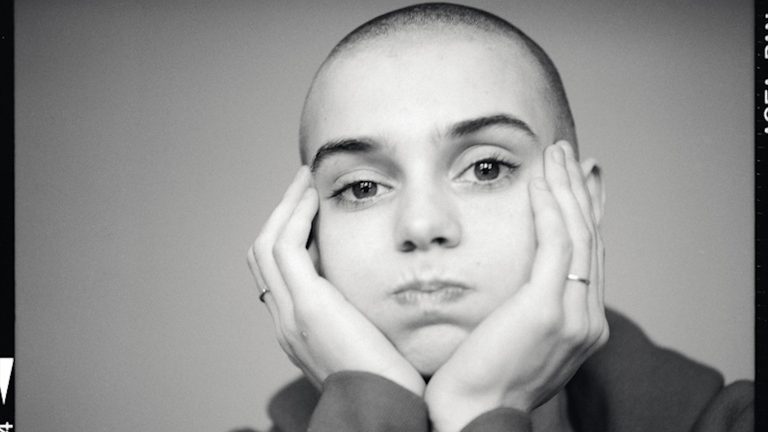
The world wasn’t quite ready when Sinéad O’Connor ripped up Pope John Paul II’s photograph protesting the Catholic church’s child abuse accusations in front of Saturday Night Live’s audience in 1992. Her action was met with a barrage of hatred and doomed her once-thriving career.
But the Sundance premiere of the documentary Nothing Compares captured the singer’s strong personality and offered audiences a portrait of one of the most compelling and prophetic artists of the past few decades.
Director Kathryn Ferguson uses a mix of archival footage and poignant reenactments to take us down the anguished memory of her abusive childhood, focusing on her mother’s cruelty which led her to the unimaginable circumstances of being institutionalized — something which scarred her spirit. The institution in question was known as the Magdalene laundries, a place adminstered by a notorious order of nuns whose outrageous treatment of young women — with hard labor, violence and sexual abuse.
The now closed place was a nightmarish world which ignored human rights, and left the young Sinead with a grim image of a shattered mirror that most of us never have to experience. To an untamed singer ready to unleash her voice in the world, this experience affected her performance, songwriting and response to the music business.
The film spans the years from the release of O’Connor’s 1987 debut album, “The Lion and The Cobra,” to her enormously successful adaptation of Prince’s “Nothing Compares 2 U.” The film effectively illustrates not only her talent, but an in-your-face approach that provided the catchy headlines and the sensational news to readers. We’ve never grown up in the turmoil of a predominantly Roman Catholic Ireland in ‘60s as Sinéad did, so it’s no surprise that people reacted to her as they did.
Of course, for Americans who consider the United States to be the best place in the world, it’s easy to mistake her behavior as being unpatriotic and ill-mannered. Not singing the American national anthem, or cutting the Pope’s picture into pieces on a popular TV program (because people throughout the world believe he represents God) made her action seem all the more blasphemous.
She has often been unfairly dismissed as an attention-seeking pop star, but the rough-and-tumble life of such an artist ultimately makes sense when viewed through this film’s lens.
O ‘Connor Is a singer who never wanted to be a pop star. She doesn’t fit into the smooth flowing notion of a pop star but are Americans kidding themselves?
She’s been patronized and dis-regarded. Even though a certain emptiness came with her stardom, the film never makes a saint out of Sinéad, but provides a context for her actions and makes a powerful case for her. So when you look at Lady Gaga or Billie Eilish in today’s world, you see a little bit of the sparks of Sinéad in them, especially for women artists who freely speak their mind.
Now also known as Shuhada Sadaqat after converting to Islam, O’Connor has continued to face tough times including the unfathomable tragedy of her son’s recent suicide. Maybe, it’s time American audiences offer her a more compassionate response.
Final Grade B+
Check out more of Nobuhiro’s articles.

